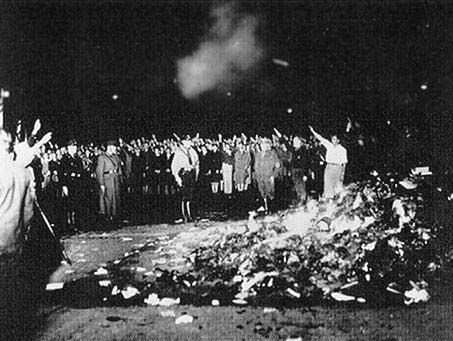The real reason US universities have succeeded

Nazis engaging in a book burning.
Becker Posner argues..., well argues something. This week the posts seem to meander around without a discernable thesis. However, they both speculate that the success of American academia is indication that "the American university system must be doing many things right." I think that's not necessarily true given that American universities were not exactly world class until after the Nazis had wrung every bit of intellectual courage out of Europe.
Considering Nobel laureates in Physics as a crude measure of academic excellence, the differences before and after the rise of fascism are stark. In the 36 award years before WWII (no physics Nobels were awarded in ’16, ’31, ’34, ’40, ’41, ’42) the US was represented among recipients six times (including three times in the thirties after Fascism had cast its shadow across Europe). In the first 36 award years after the war, Americans were represented among recipients in 21 years.
According to this wiki, Ernst Cassirer, the dissertation advisor to Leo Strauss, considered Harvard too provincial to accept their offer of a visiting professorship sometime between 1906 and 1919 despite eventually taking visiting professorships at Yale and Columbia after WWII. Schumpeter, Hayek, and Godel are all good examples of European intellectuals chased out by the rise of Fascism.

0 Comments:
Post a Comment
<< Home